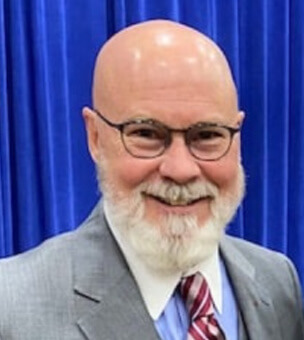912. A Day in the Life: What's It Really Like to Be an Energy and Environmental Expert?
Tom Mullikin

“To me, the biggest breakthroughs in this country are our broad and sweeping environmental standards that are enforceable. Many countries around the world have just passed in total our environmental standards, and they’ll say that. The question is not what your standards are. The question is how are you prepared to enforce those standards. And that’s where you see Bobby Kennedy and others roll in behind you to insist on enforcement. I tend to involve myself in what some people would call counseling attorney and counselor-at-law. It’s the counseling side of helping not only big business, but also governments, like the government of Fiji and others, where I go in and try to find that higher ground, where we can have the highest level of environmental protection while also ensuring that we’re not destroying the economy at the same time. People often ask, why do you care about that? The reason is that the places I’ve been around the world that have the most robust economies also have the highest level of environmental protection.”
Major General Tom Mullikin, who chairs the South Carolina Floodwater Commission, was once referred to by the South Carolina Governor as “the most interesting man in the world.” An energy-environmental attorney and a university professor, Tom is a former U.S. Army officer and retired commanding general of the South Carolina State Guard who has spent the last four decades leading expeditions to many of the most remote regions in the world, traversing every continent on earth, climbing mountain ranges of the world’s seven tallest peaks—including reaching the summits of more than 20 mountains across the globe—and logging scuba dives in all the world’s oceans.
The Most Impactful Turning Point?
“Early in my career I was fortunate to be involved with a number of projects that evolved into climate change issues: clean air, clean water issues and more…. It was really the developmental stage of the laws and regulations that we operate under now, that I had a small hand in developing, that shaped the trajectory of my career.”
The Most Powerful Lessons and Experiences?
1. “When I’m asked how I got started in this field, I answer that I was president of the ecology club in the 4th grade. Funny but true! I’ve always enjoyed science and have always loved being outdoors.”
2. “After college at the University of South Carolina, my wife and I went to D.C. where I worked on a NOAA (National Oceanic and Atmospheric Administration) subcommittee headed by Deb Sterling, a brilliant environmental attorney. She’s back in Columbia now and is a big part of our South Carolina Floodwater Commission.”
3. “In 1980 I was on my way to Quantico and during my final medical inspection a Navy doctor medically disqualified me because of my foot condition—bilateral club feet. It wasn’t until 10 years later that I got a medical waiver and a direct commission in the U.S. Army JAG Corps (Judge Advocate General’s Corps).”
4. “In all of our major bodies and environmental law, citizens can act as private attorney generals if the government has failed to. So if you go into an area in this country where the government, because of the things that we just referred to, failed to diligently prosecute, then citizens can stand in the shoes of a private attorney general and bring these cases against polluters. These are remarkably important provisions that a lot of people don’t know about. And it’s fairly easy to do this. You send a 60-day letter to the government saying, if you don’t cure this—this defect and failure to diligently prosecute—we’re going to bring an action.”
Subscribe to the Podcast Free:
Careers: Environmental & Energy Expert, Lawyer, U.S. Army


